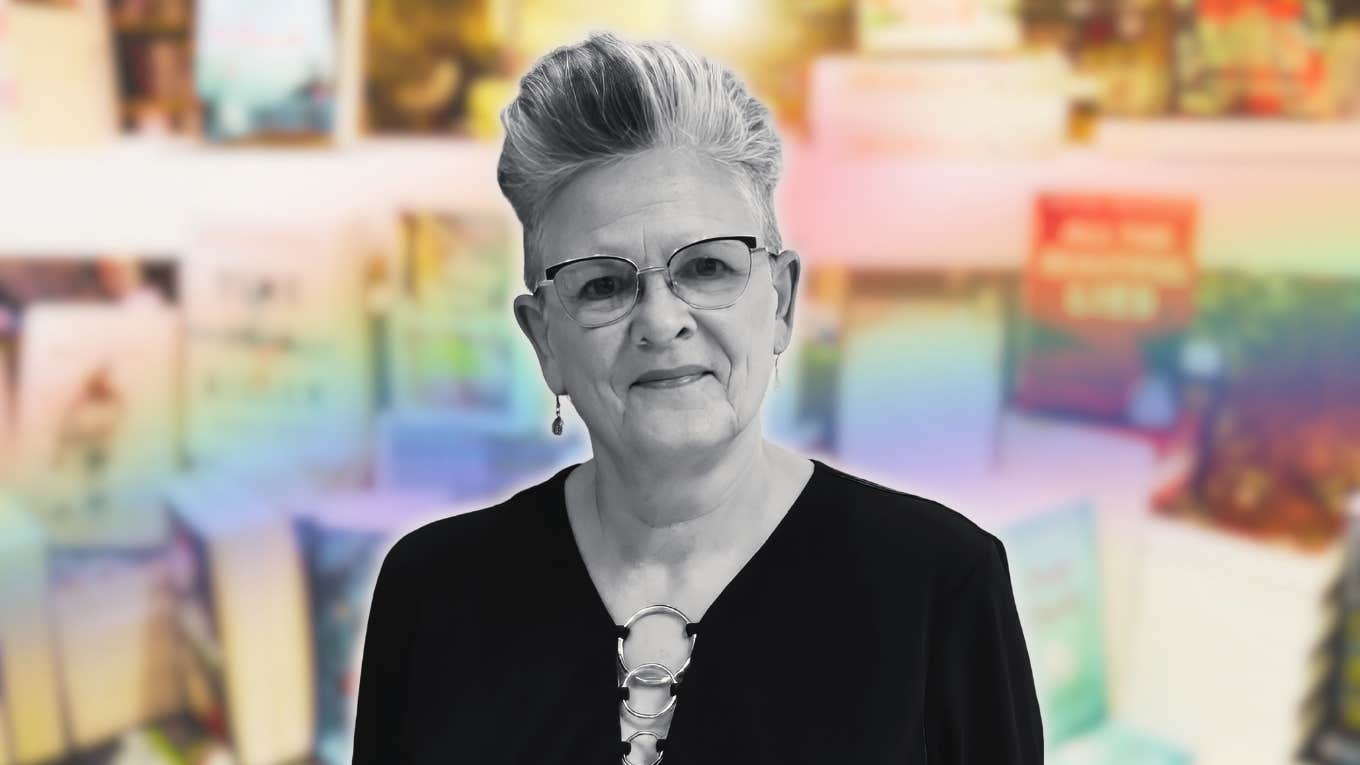When Things Fell Apart, My Life Got So Much Better
Two simple concepts gave me the power to grow and be happy.
 Courtesy Of Author, RapidEye | Canva
Courtesy Of Author, RapidEye | Canva When I came out of the closet at fifty, I experienced a beautiful and tumultuous transformation. The range of emotions I experienced during the process was similar to the feeling you get riding a theme park rollercoaster. The highs were breathtaking, and the lows were frightening.
During the two years before I exposed my sexuality, I read a book by American philosopher Pema Chodron called When Things Fall Apart, which proved life-changing. Or maybe it would be more accurate to say life-enhancing. The book is filled with great advice and timeless wisdom that can help anyone during a crisis. But you don’t have to be in a crisis to appreciate the value of the advice found in this great book.
 Author in a local bookstore | Photo by Victoria Hogue
Author in a local bookstore | Photo by Victoria Hogue
My life was definitely in turmoil, but it was brought on by my decisions, choices, and newly established values rather than being something that was thrust on me by circumstances beyond my control. For some reason, that brought me a sense of empowerment because I was finally choosing to live authentically. Having spent nearly four decades hiding my sexuality, I was ready to experience life beyond the veil I’d lived behind. But that liberation came at a high cost, which meant dealing with feelings of guilt and sadness.
There were two fundamental principles from the book that resonated with me, and consequently, they became my lifelines.
The first philosophy was rooted in the concept of detachment, which is most commonly associated with Buddhism.
Looking back, the times in life when I found myself the most disappointed were situations where I was attached to a particular outcome. Most of us do this to some degree or other. We look at a situation, relationship, or job and play out exactly how we want things to go, and then we hold onto that desired result for dear life.
Things rarely go as planned, though, and so we find ourselves feeling angry or disappointed that things didn’t meet our expectations. But, if I purposely detach myself from the outcome, I find I’m much happier and calmer.
It was challenging to adopt this new mindset because I was prone to thinking about how I wanted things to be. I kept working at it, and now it’s rare that I feel disappointed over an outcome. I do my best to hold everything loosely, knowing that I can’t dictate how things will play out. It’s been a huge relief to give up trying to control all the variables.
The second concept that resonated with me was allowing myself to feel whatever came up and then when I was ready, let it go. This teaching ties into the first lesson because, in a way, I am allowing myself to feel and then detaching from those emotions rather than being controlled by them. Because I hid my sexuality for about four decades, I was very good at hiding my emotions and denying my feelings. Years of doing that made it difficult and scary to give myself the freedom to feel.
I don’t know about you, but I tended to view certain emotions as bad. I’d tell myself being angry, hurt, or grieved was wrong. It felt like I was out of control when those emotions came up. I worked very hard to keep everything neutral.
To help myself, I adopted a mantra from the book that I still use today.
A mantra is a keyword or phrase that we use to meditate or keep our focus. Oftentimes, people use mantras to keep their focus while meditating. For me, the mantra became a way to center my mind and focus on the behavior I wanted to exhibit. Whenever emotions of sadness, guilt, or anger rose to the surface, I would say, “Feel what you feel, and then let it go.” That phrase was a way to permit myself to feel.
It took a couple of months to get comfortable allowing my emotions to be felt and expressed, but with repetition, I was able to do it easily. It also helped me to let go of the emotions after they had served their purpose.
Sometimes, we don’t allow ourselves to feel, and other times, we latch onto those feelings and don’t let go. Neither option is healthy, in my opinion. This mantra is valuable, especially if you are prone to fear. Because fear is so palpable, it can send us into mental spirals that aren’t healthy or productive. Acknowledging our fear and then working to let it go keeps us grounded.
Looking back, I’m so grateful that When Things Fall Apart came into my life at the right time. The lessons I learned from it have served me well.
Kim Kelly Stamp is a writer, essayist, and editor for Parasol Pubs. Her work has appeared on Insider, Huffington Post, New York Times, NBC News, StyleCaster, Metro UK, Shondaland Digital, and Medium, among other outlets, where she writes about authenticity, retirement, relationships, and lifestyle topics.

